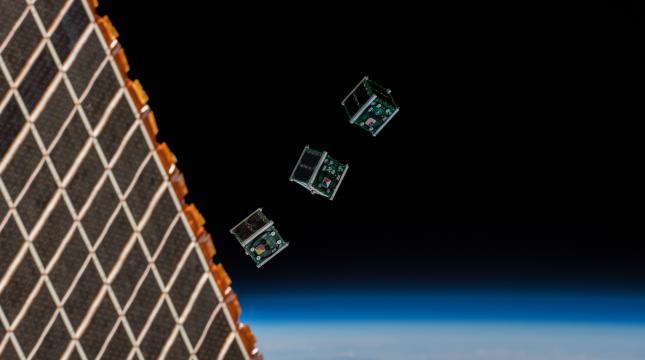
INdoor navigation from CUBesAt TEchnology (INCUBATE)
Project information
Project description
A sufficiently accurate positioning service that works seamlessly in outdoor and indoor spaces does not currently exist. GPS does not work reliably indoors and between high buildings in cities, not to mention telling the room or floor of the location.
– A solution for precise positioning, navigation and timing can be found by utilising LEO small satellites that orbit the earth at a low altitude. They send a stronger signal to the earth than the traditional positioning satellites and orbit the earth faster than them, even in 40 minutes. If proposals about building an internet based on small satellites are realised, there will be about 50,000 active satellites orbiting the earth in ten years,
In the three-year INdoor navigation form CUBesAt Technology i.e. INCUBATE research project, the objective is to study how positioning, navigation and timing (PNT) based on small satellites can be used in indoor spaces.
The project will also research the commercial potential of the solution and revenue possibilities, partly jointly with companies. The technology developed in the project will offer extensive application potential for many industry sectors.
The researchers intend to also develop the use of current small satellites for positioning, as well as new payload, i.e. equipment and software carried by the satellite, to improve navigation solutions.
The satellite signal and its reception must be optimised so that a sufficiently high-performing satellite signal can be defined for accurate positioning and navigation.
From the University of Vaasa, the Digital Economy research platform headed by Heidi Kuusniemi is involved in the project, as well as the International Business and Marketing research group represented in the project by Arto Ojala, Professor of International Business. Other researchers in the project are Kendall Rutledge and Petri Välisuo, Jani Boutellier and Mohammed Elmusrati, together with their doctoral researchers.
The research project led by the University of Vaasa receives funding in the amount of EUR 950,000 from the Building the Future - Taking Action programme of the Centennial Foundation of the Federation of Finnish Technology Industries and Jane and Aatos Erkko Foundation.
Project leader: Director, professor Heidi Kuusniemi, Digital Economy -research platform, University of Vaasa
More information: Press release
